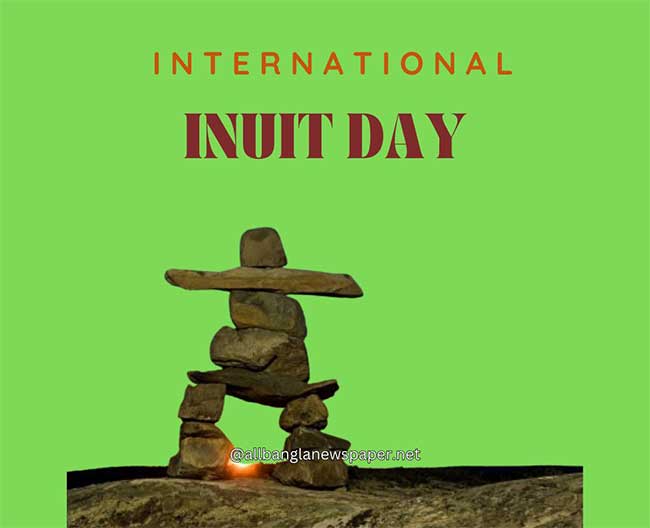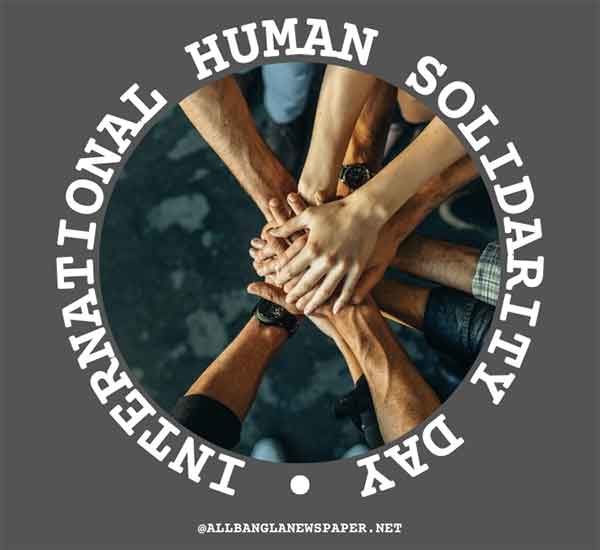
International Inuit Day is a significant occasion observed annually on November 7th, dedicated to celebrating the Inuit people's culture, history, and resilience. This day is a tribute to the Inuit heritage and an opportunity to raise awareness of the critical issues facing Indigenous communities, particularly in the Arctic regions. Recognized globally, #InternationalInuitDay is a reminder of the Inuit's contributions, struggles, and the ongoing fight for their rights and environmental protection.

What is International Inuit Day?
International Inuit Day was established to honor and acknowledge the community and its unique way of life. The Inuit, an Indigenous group living primarily in Arctic regions, including Canada, Alaska, Greenland, and Siberia, have a rich cultural heritage closely tied to their environment. International Inuit Day highlights the Inuit's traditions, values, and pressing challenges in a rapidly changing world.
Why is International Inuit Day Important?
International Inuit Day is crucial in raising awareness of the socio-economic and environmental issues impacting Inuit communities. It highlights the need for cultural preservation and the protection of Inuit rights, focusing on how climate change disproportionately affects the Arctic and its Indigenous peoples. Additionally, this day is an opportunity for the Inuit to share their knowledge, advocate for policies that protect their lands, and promote a sustainable future for their communities.
The Rich Culture and Heritage of the Inuit
Inuit Art and Storytelling
The Inuit culture is well-known for its art and storytelling traditions, which have been passed down through generations. Inuit art, such as carvings, prints, and textiles, reflects the community's deep connection to nature, illustrating animals, landscapes, and legends. Storytelling, another integral part of the Inuit culture, preserves knowledge, values, and history, helping younger generations understand their heritage.
Traditional Practices and Way of Life
The Inuit have traditionally lived as hunter-gatherers, relying on the land and sea for survival. Hunting, fishing, and crafting tools from natural resources are skills essential to #InuitCulture. These practices are a means of sustenance and reflect the Inuit's respect for the environment and their resourcefulness in adapting to harsh Arctic conditions.
Challenges Facing the Inuit Community
Climate Change and Environmental Threats
Climate change severely threatens the Inuit way of life as rising temperatures impact the Arctic landscape. Melting ice, habitat loss, and shifts in wildlife migration patterns disrupt the traditional Inuit lifestyle and their ability to hunt and fish. The Inuit community actively advocates Climate Change, calling for global efforts to protect the Arctic environment.
Cultural Preservation and Language
With globalization and modernization, Inuit languages and cultural practices are at risk of fading. Preserving the Inuit languages, such as Inuktitut, is crucial for maintaining cultural identity. Many Inuit organizations are working to integrate language programs and promote cultural practices within schools to keep the #InuitHeritage alive for future generations.
International Efforts to Support Inuit Rights
International organizations and the Inuit Circumpolar Council (ICC) have played a vital role in advocating for Inuit rights and environmental protection. The ICC represents the Inuit across Canada, Alaska, Greenland, and Siberia, working on climate change, cultural preservation, and the sustainable development of Arctic resources. The International Day for Preventing the Exploitation of the Environment in War and Armed Conflict also intersects with Inuit advocacy, emphasizing the importance of protecting Indigenous lands from exploitation and degradation.
Global Advocacy and Policy
The United Nations and other international bodies recognize Arctic Indigenous communities' unique challenges and are working to support their rights and cultural preservation. Policies focused on environmental protection, land rights, and sustainable development are crucial in helping the Inuit community and ensuring their voices are heard.
How to Support and Celebrate International Inuit Day
Celebrating International Inuit Day can be a powerful way to show solidarity with the Inuit community. Here are some ways individuals can honor this important day:
• Educate Yourself and Others: Learning about Inuit culture, history, and current challenges is a meaningful way to support their community.
• Support Inuit Artists and Organizations: Purchasing Inuit art and supporting organizations dedicated to Inuit rights can make a difference.
• Advocate for Climate Action: Supporting climate action initiatives and policies that protect the Arctic environment can help safeguard the Inuit way of life.
International Inuit Day honors the resilience, culture, and contributions of the Inuit people. As the world faces environmental challenges and Indigenous communities fight for their rights, this day reminds us of the importance of cultural preservation and the urgent need for sustainable policies. Recognizing the unique relationship between the Inuit and the Arctic, we can collectively work towards a future that respects and protects Indigenous communities and their invaluable heritage.





